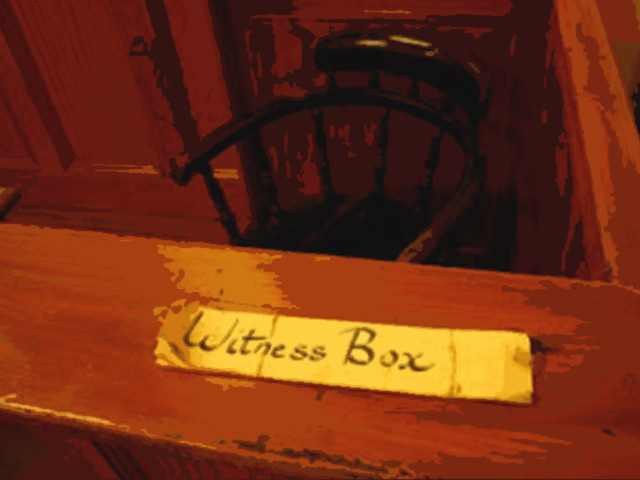No-implementation policy: Witness Protection Law yet to see the light of day
The officials meant to be on the advisory board do not even know it exists.

"No one is bothered whether the laws being passed are implemented or not," Pakistan Muslim League - Functional MPA Imtiaz Shaikh. PHOTO: FILE
Over six months have passed since the promulgation of the 'Sindh Witness Protection Act 2013' but the law has yet to be implemented in the province.
In September 2013, the Sindh government had boasted to be the first province to have drafted the 'extraordinary' law. Its implementation, or lack thereof, has however, put a question mark on the performance of the government.

The key impediment in the execution of the law has been the indifferent attitude of the government officials and the bureaucrats who have yet to form the 'witness protection advisory board'. The board is meant to exercise the law and look after the witness protection policies.
When the newly-appointed home secretary, Niaz Ali Abbasi, who was meant to chair the board, was contacted by The Express Tribune, he expressed ignorance regarding the board's existence. "I have recently taken over charge of the home department. I do not know if the board has been formed," he said. The other members of the board, according to the law, include the finance secretary, police inspector general, prisons inspector general, the prosecutor general and the advocate general. None of the officials were, however, aware of the board's existence or that they had been nominated its members.
"I remember we had drafted the law to provide protection to witnesses enabling them to give evidence in criminal proceedings, but not a single witness has so far been presented in the court under this law," the advocate-general of Sindh, Fatah Malik, told The Express Tribune.
According to its objectives, the law was drafted in view of the increasing activities of terrorism as witnesses refused to record statements against the accused out of fear for their lives. The law allowed witnesses to conceal their identity by wearing a mask, change their voice or appearance and also allowed them to be segregated during the investigation or trial.
"If the witness cannot come to court due to security reasons, the law would allow them to testify via video conferencing," the act stated. Witnesses can be relocated in view of threats to their lives and the government would provide accommodation and reasonable financial assistance. The legal heirs of the witness will be compensated and their children would be provided free education if the witness were to be killed during the protection period.
The minister for parliamentary affairs, Dr Sikandar Mandhro, had termed the witness protection law a 'landmark' achievement. When contacted by The Express Tribune regarding the current status of the board, however, Dr Mandhro could not come up with a conclusive response. "As lawmakers, we have fulfilled our duty. It is now up to the relevant department to set rules and execute the law." Sometime later into the conversation, he shifted his stance, saying: "I think the home department has formed the board and some prisoners have also been shifted from Karachi to other districts under this law."
The advocate general, however, rebuffed Dr Mandhro's claims, saying that the prisoners had been moved under the Pakistan Protection Ordinance (PPO), not the witness protection act.
Under the law, the Crime Investigation Department's AIG will act as the chief witness protection officer. The AIG will submit an annual report to the government regarding the performance and effectiveness of the programme. When contacted, the acting inspector general, Iqbal Mehmood, who earlier held the post of CID AIG, had no idea about his appointment as the chief witness projection officer. "I have heard about the law, but no one consulted or contacted me even when I was the CID in-charge a month ago."
The opposition and treasury members often raise the issue of implementation of the pending laws, but government hardly seems to pay any heed. "No one is bothered whether the laws being passed are implemented or not. They [the government] are merely focusing on number games, showing statistics of the bills and resolutions adopted by the house," lamented opposition member, Imtiaz Shaikh, who belongs to the Pakistan Muslim League - Functional (PML-F).
Cases in which a witness may be placed under protection:
Treason
Sedition
Murder
Rape
Public violence
Any offense relating to extortion, fraud, forgery, theft (involving amount of more than Rs5 million)
Robbery (when there are aggravating circumstances)
Kidnapping
Any offence relating to contraband drugs and drugs trafficking
Indecent assault on a child under the age of 16 years
Published in The Express Tribune, March 27th, 2014.



















COMMENTS
Comments are moderated and generally will be posted if they are on-topic and not abusive.
For more information, please see our Comments FAQ